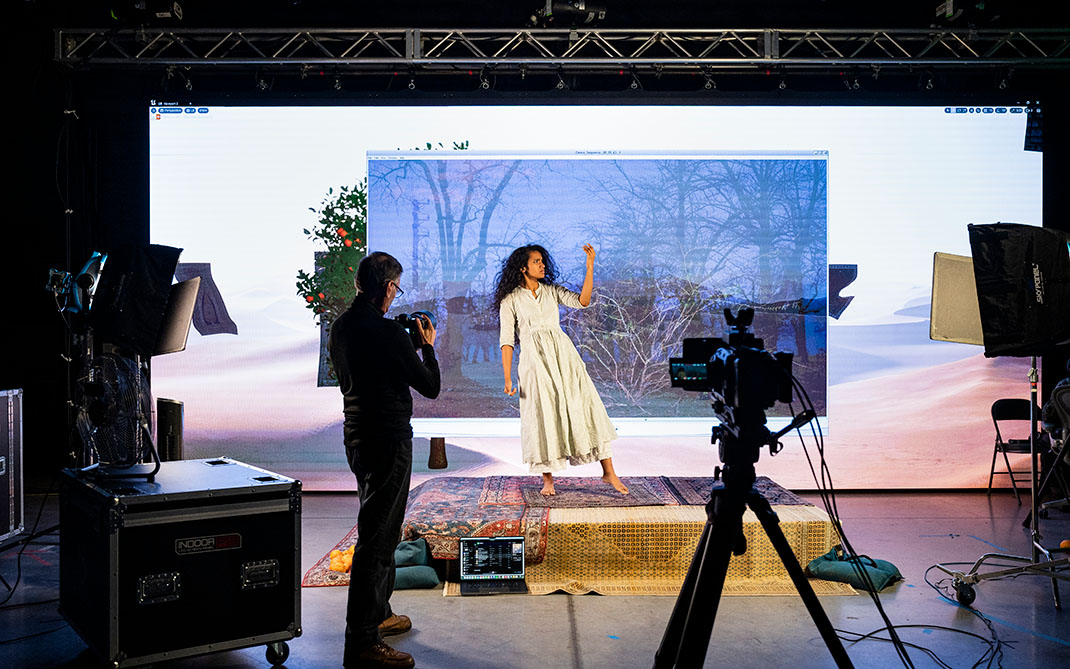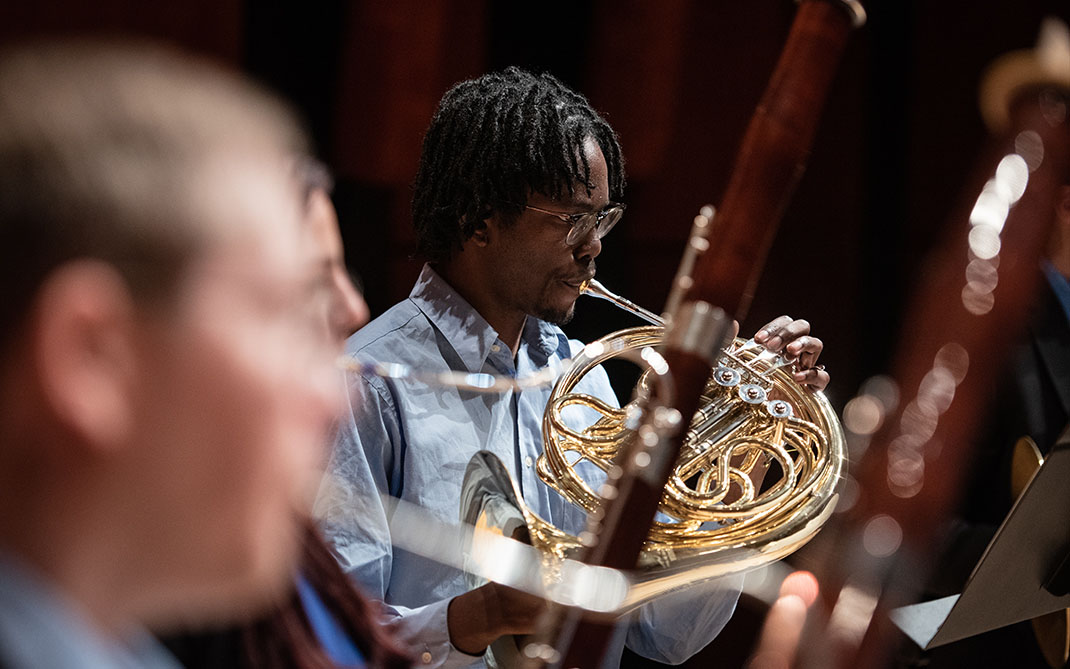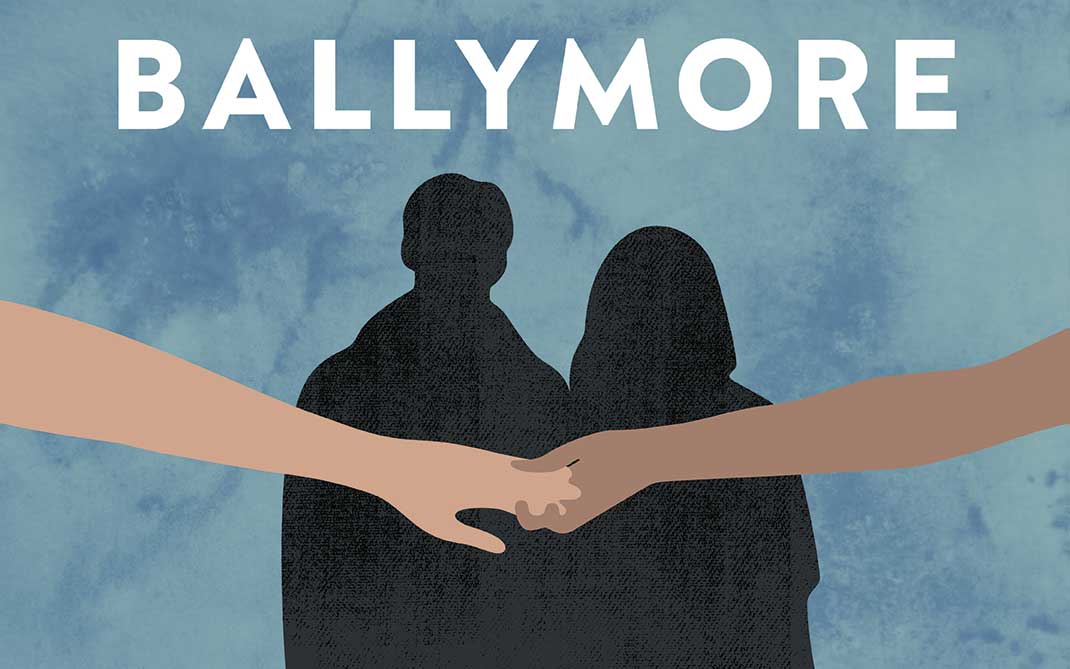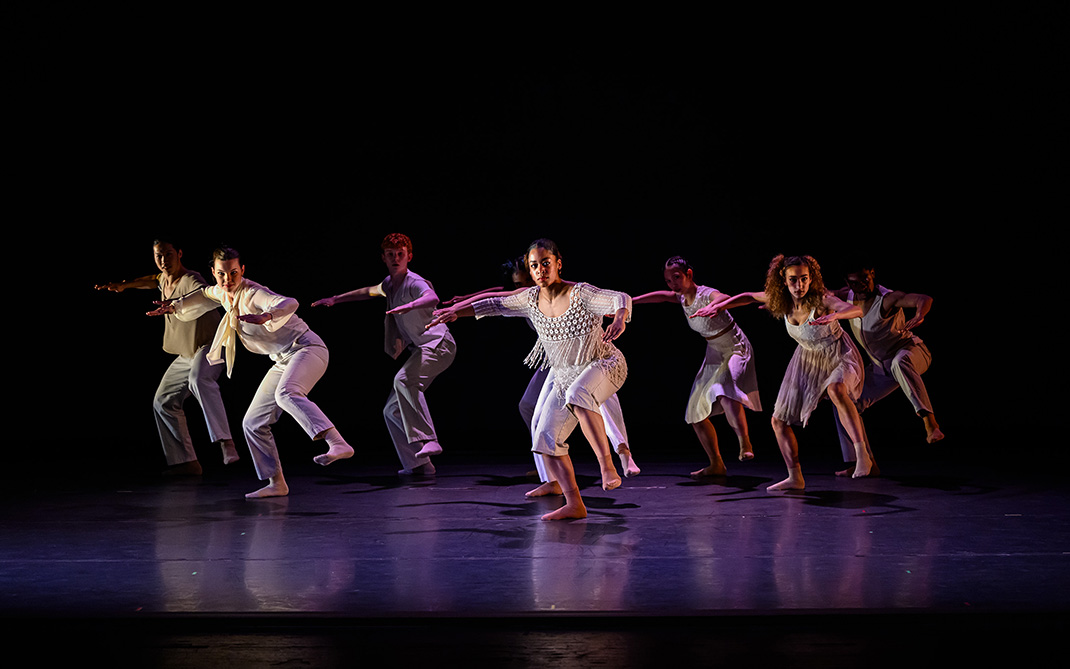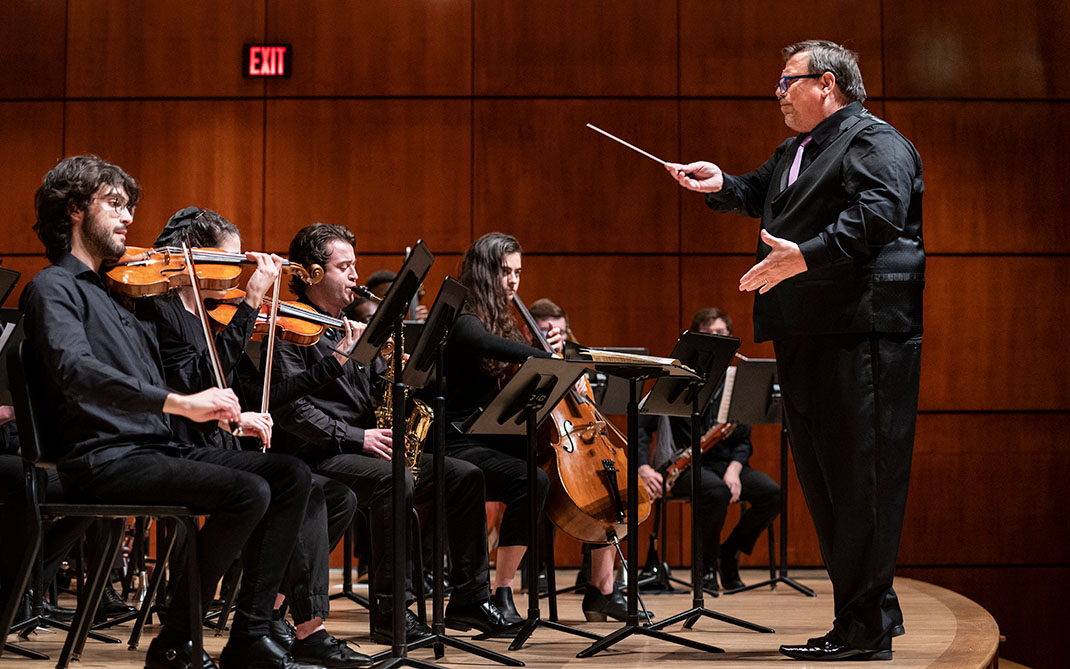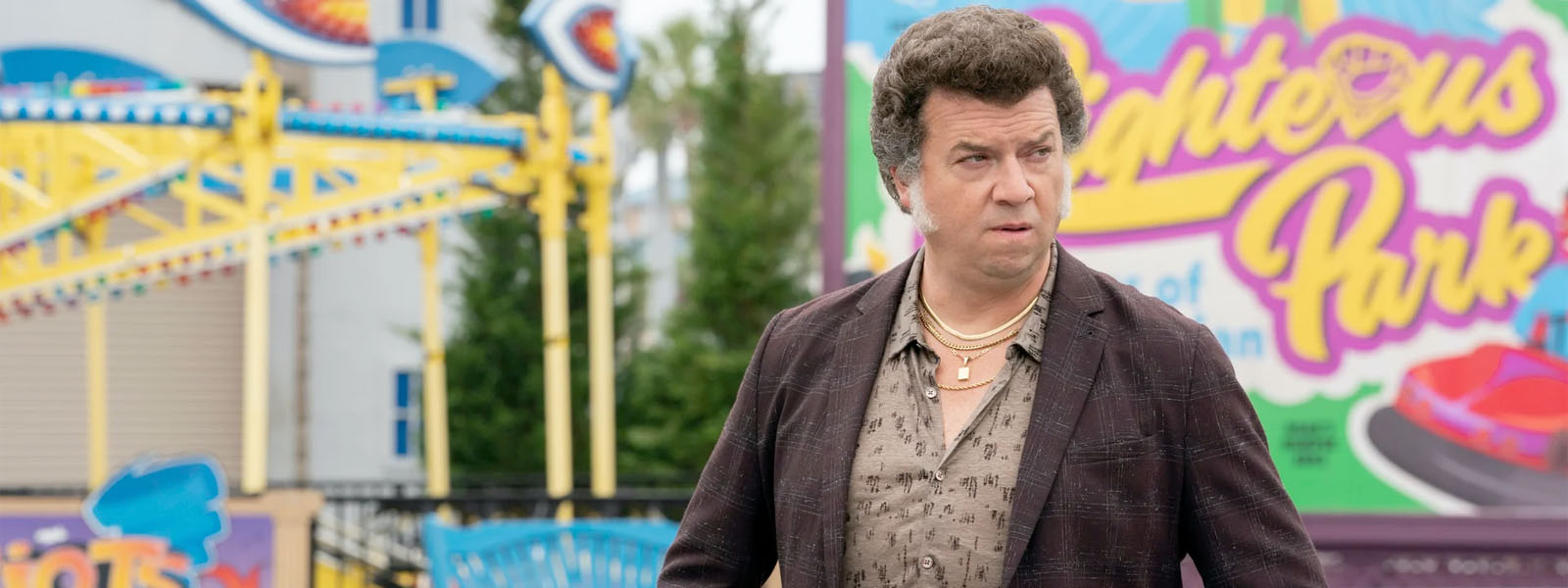Fearlessly funny: How Film alumus Danny McBride is reshaping comedy
From “sucker-punch” comedy to horror, 1999 School of Filmmaking alumnus Danny McBride has become one of the most formidable forces in film and television. Coined by The Ringer as the “Danny McBride Multiverse,” his catalog of credits boasts nearly two decades’ worth of boundary-pushing material.
The myriad titles he’s assumed over the years include executive producer for the classic horror reboot “Halloween” and creator, writer, director, and star of “Eastbound and Down” and “Vice Principals.” Recently, he’s also taken HBO by storm with “The Righteous Gemstones,” which he created, stars in, writes and directs.
So, what accounts for McBride’s remarkably successful versatility? Talent, drive and a willingness to embrace new challenges are certainly reasons, as is a foundational love of the art.
But at the core of McBride’s craft are the skills he learned at UNCSA and the relationships he forged. The friends he made as a student have become lifelong partners — with them, he learned and explored at the film school, forayed into acting and comedy, collaborated on hit shows and movies, and founded a one-of-a-kind production company that’s remapping the film industry.
Forging connections
When McBride arrived at the film school, it was tiny, only two years old and still defining itself — the perfect place for a group of self-described “misfits” to exercise their creative freedom. It was there that McBride met filmmaking students David Gordon Green ('98), Jody Hill ('99), Ben Best ('99), Jeff Fradley ('98) and John Carcier ('99), who would become his lifelong friends and closest collaborators.
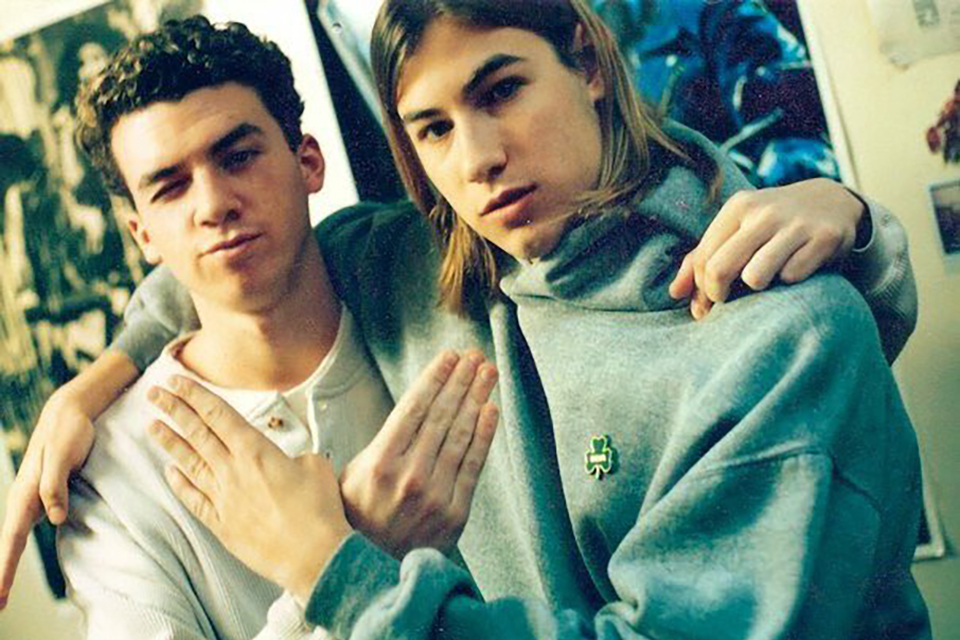
Danny McBride and Jody Hill at UNCSA in the late 1990's. / Photo: Justin Staple on Twitter
“At the School of the Arts, we had that incredible screening room and we spent weekends watching movies and talking about them,” McBride remembers. This foundational love of film bonded the group, as did the creative freedom they discovered at UNCSA. Decades later, that bond remains strong.
“I think that appreciation for film has just continued on through our adult lives,” explains McBride. “We constantly fed each other’s creativity and it’s just something that we have kind of maintained. The school is also located in Winston-Salem, far away from New York and Los Angeles, and that made us feel like underdogs. Keeping camaraderie was a tool as we kind of ventured into this bigger world.”
I think that appreciation for film has just continued on through our adult lives. We constantly fed each other’s creativity and it’s just something that we have kind of maintained.
Danny McBride
As McBride graduated from the screenwriting and directing program and began working in Los Angeles, that camaraderie paved the way for him to become the comedic heavyweight he’s known as today.
Finding success in unlikely places
In the beginning, McBride was solidly behind the camera. And his favorite movie genres were about as far from comedy as it gets – horror films, documentaries and reality TV But he had a knack for comedy and a penchant for embracing opportunities. When Green asked him to act in his 2003 film “All the Real Girls,” McBride quit his job and headed back to North Carolina for filming.
Shortly after, McBride began working on a project with Hill that would solidify him as both a creator and an actor: “The Foot Fist Way,” a film that Collider describes as “kickstarting Danny McBride’s career of anti-heroes.” In a 2013 interview, McBride and Hill told podcast host Chris Hardwick that he and his film school friends started acting out of necessity. “Because we had no actors, we just put each other in each other’s movies,” McBride said. And “The Foot Fist Way” was no exception.
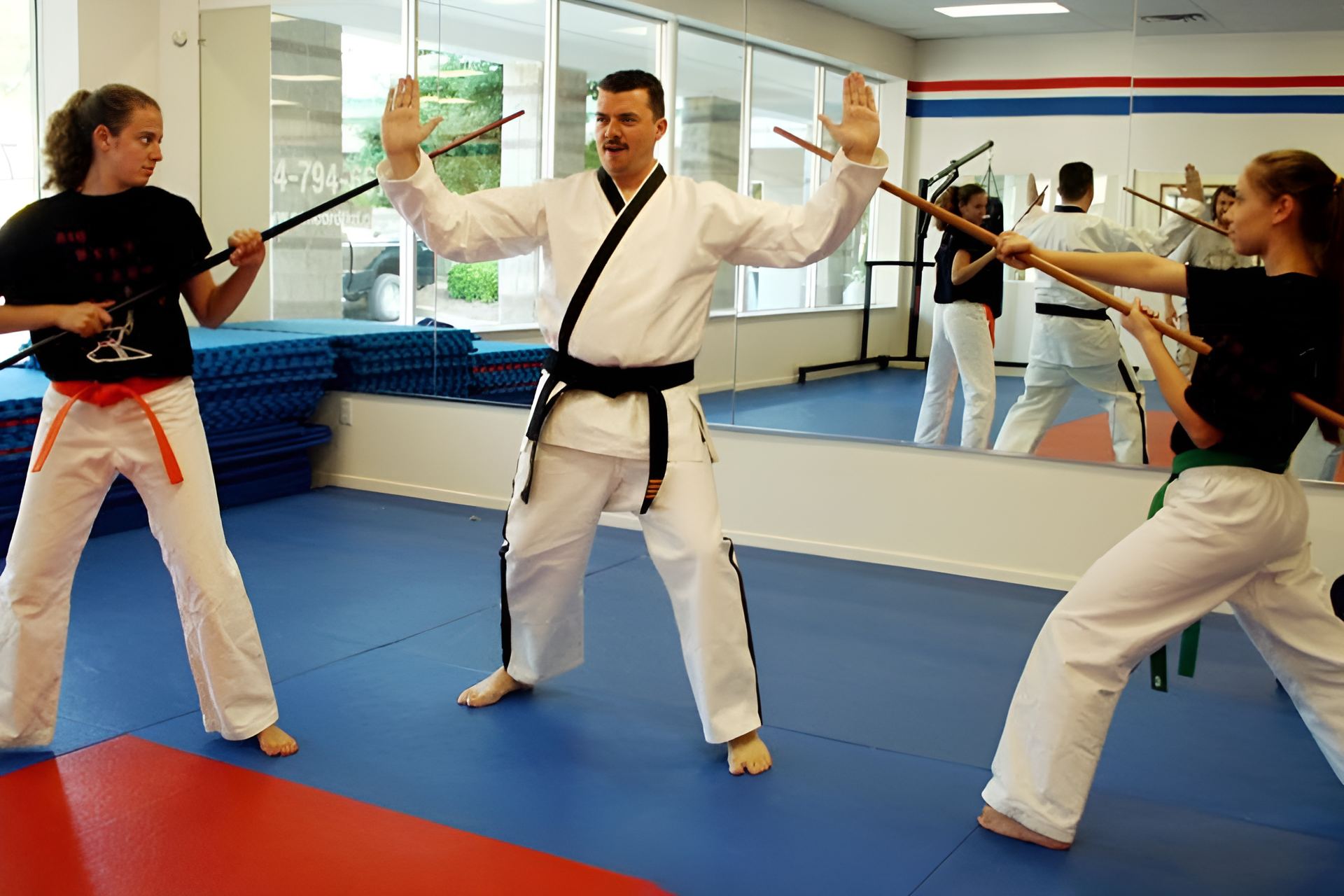
Danny McBride in "The Fist Foot Way." / Photo: IMDB
In the film, he plays Fred Simmons, an egotistical and inept tae kwon do instructor, alongside Hill’s character Mike McAlister and Best’s Chuck ‘The Truck’ Wallace. When the film was picked up by Will Ferrell and Adam McKay’s newly created company, Gary Sanchez Productions, the world got its first dose of McBride’s now-iconic arrogant, raunchy and hyper-masculine character type. Almost by accident, he became a comedic sensation.
Bending the rules
Despite their success in the genre, comedy wasn’t the initial plan for McBride and his alumni collaborators. “We never even really wanted to do comedy,” Hill explained to Hardwick when recounting the creation of “The Foot Fist Way.” “We came up with a funny idea, and it just kind of started us on a comedy path.”
But one thing was for sure: if McBride is going to do comedy, he was going to do it his way. No button jokes, no punch lines, no worrying about the number of jokes per minute. “We sort of don’t approach them like they’re comedies, we kind of approach them like they’re dramas,” McBride told Hardwick about his TV projects. “The more serious the character takes it, the funnier it becomes.”
With this approach, McBride, Hill and Best created and wrote “Eastbound & Down” with roaring success. The show quickly became a fan favorite and its main character — a washed-up baseball player portrayed by McBride — solidified the team as comedy masterminds. Following the show’s success, McBride and Hill created the series “Vice Principals,” another dark comedy hit that McBride directed, wrote and starred in.
Most recently, McBride returned to HBO with “The Righteous Gemstones,” which has received critical acclaim and is considered one of HBO’s best series. At its surface, a straightforward comedy, “The Righteous Gemstones,” has been recognized by publications like Variety and The Atlantic for its “sharp observations” and “surprising profundity,” a depth that keeps viewers returning season after season.
Reshaping the industry
To support his kind of comedy, McBride co-founded a production company with Green and Hill — Rough House Pictures, which describes itself as “a hub for exciting and bold comedic voices.” Founded in 2009, the company has been behind many of McBride’s projects, from his best-known to his least. And, since 2017, it has been steadily reshaping the film industry.
After his second child, McBride and his growing family moved from Los Angeles to Charleston, South Carolina; he brought the production company with him. Green and Hill have since joined him in the south, as has Rough House’s president Brandon James. Charleston has become the home base for projects like “The Righteous Gemstones.” With industry opportunities and revenue pouring in, the alumni-founded company is helping to break the industry out of Hollywood’s borders.
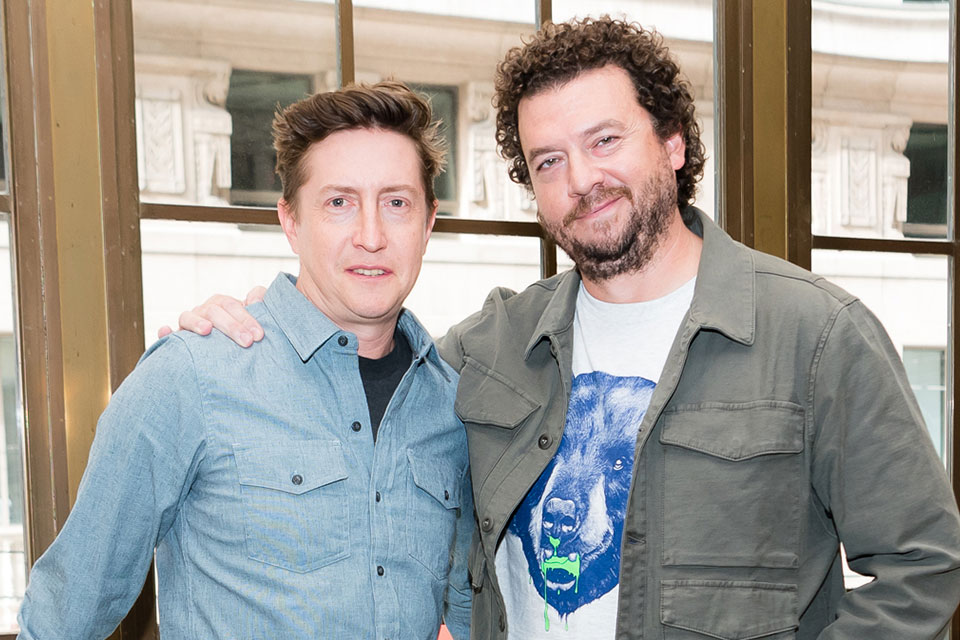
Alumni David Gordon Green and Danny McBride, who founded the production company Rough House Pictures with alumnus Jody Hill.
“It seems like a creative utopia,” writes the New York Times. “The region’s lower production costs have made it easier for Rough House to develop an array of dream projects, relying on local crews fed and ferried by local businesses.” And others are looking to McBride’s example — as Adam McKay told the Times, “I think what they’re doing is going to now become the norm with what’s changing here in Hollywood and the way commercial entertainment is made. I think stuff is going to get hyperlocal.”
Rough House Pictures and Charleston's possibilities have also enabled McBride to undertake a new endeavor — he teamed up with his old classmates for a little horror homecoming.
Something primal
In 2018, slasher favorite Michael Myers came back to life for the first time in 40 years, resurrected by McBride, Green and Fradley. Written by the trio and directed by Green, the reboot of John Carpenter’s 1978 classic horror film — both titled simply “Halloween” — returns to the franchise’s roots, striking a balance between tradition and innovation. To do so, they returned “Halloween” to its original setting in the suburban town of Haddonfield, Illinois — filmed in Charleston, of course.
“Sometimes, when you have a really heightened horror movie that takes place in some extreme location it’s kind of hard, when the movie is over with, to be frightened by it because you’re not in that situation,” McBride explains. “But everybody sits at home in the house alone at night and thinks they hear a noise outside. That’s kind of what ‘Halloween’ taps into so effectively.”
Two films in particular influenced his writing of the script: “The Shining” and “Jaws,” both among McBrides’ favorites. “There’s something in the simplicity of these films that still works today,” he says. “They tap into something that is primal, a fear that just isn’t too convoluted. We took a similar approach with ‘Halloween,’ shunning the mythology that the other sequels created and just boiled it down to what was just essentially scary about it.”
To achieve this, McBride tapped into additional UNCSA talent, hiring Fighting Pickles in roles from production designer to music editor to actor. And when the film was nearing its release date, he came to campus with Green and Fradley for a screening and discussion, offering his expertise to the next generation of filmmakers.
Drawing on experience
Whether comedy or horror, television or film, at the root of McBride’s process are the skills he learned at UNCSA.
“What I loved about School of the Arts was that there was a set budget of what you had to spend for each production,” he says. “Everyone had to obey that and everyone had to operate under that.” This exposure to budgeting prepared McBride for what he’d be up against with independent films.
The student productions taught me to really look to the people around you for support and to find out what it is that they excel at, embrace that, and give everyone a chance to do what they do best.
Danny McBride
“The budget is the budget, you know? You have to make it come in. We faced that challenge even with ‘Halloween,’ which was made for just a little over 10 million dollars. You get creative and figure out how to get the most bang for your buck. Ultimately, that makes for better storytelling because you really make sure that what you’re executing is exactly what you need.”
But one lesson in particular has shaped how McBride approaches filmmaking. “The student productions taught me to really look to the people around you for support and to find out what it is that they excel at, embrace that, and give everyone a chance to do what they do best,” he says. “We still try to give as many people as we know opportunities and we try to shepherd people into this industry.”
As for advice to current students, McBride has a simple message: “There’s a beauty in what you guys have here, in the friendships you can make here and what you’re exposing yourself to. There’s plenty of time to be broke in Los Angeles — enjoy your time in Winston-Salem.”
by Ken Keuffel and Sasha Hartzell
Originally published: October 15, 2018; updated: January 31, 2024

